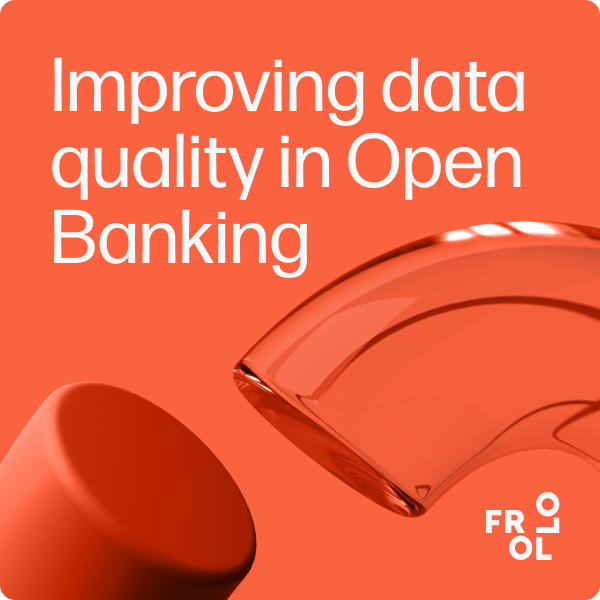
Frollo calls for use case based approach to improve Open Banking data quality
Frollo, Australia’s leading Open Banking provider, calls for a collaborative, use case based approach to enhancing data quality in the country’s Consumer Data Right (CDR) ecosystem. With nearly four years of experience in the space, Frollo has a unique vantage point on data access and quality in the Consumer Data Right.
“As part of our ongoing effort to contribute a data-backed perspective to the conversation about Open Banking in Australia, we’ve looked into the availability of data required for a comprehensive, high-value Open Banking use case: money management,” said Tony Thrassis, Head of Open Banking and Regulatory Affairs at Frollo.
“Focusing on this use case is insightful because achieving the required data richness lays the foundation for delivering better outcomes across many other use cases,” Thrassis explained. “These other use cases, such as lending, customer onboarding, financial planning, and payments, all rely on subsets of the data needed for comprehensive money management.”
The Results: Specific Recommendations For Impactful Improvements
Frollo’s research contains a deep dive into the quality of relevant data provided by Data Holders in a production environment. The goal is to provide a clear, use case based overview of the key areas that require improvement.
The first part of this analysis looked at product information across seven of Australia’s largest financial institutions: Commonwealth Bank, Westpac, NAB, ANZ, Bankwest, Macquarie, and ING. These banks collectively account for most personal banking relationships in Australia.
This analysis found:
- Credit limit was provided consistently by six of the seven banks (86%).
- Six of the seven banks consistently provide minimum repayments for liabilities, with one bank only doing so 89% of the time.
- Six of the seven banks consistently provided information on loan repayment type (interest only vs. principal and interest), with one exception that only provided this information 82.5% of the time.
- Five of the seven banks (71%) provided interest rates for mortgage and personal loan products without issue, while two banks failed to specify the type of interest rate.
The second part of this analysis examined transaction data available via Open Banking across all participating banks for 210 Million transactions between July 2023 and March 2024.
Frollo identified two key areas for improvement:
- 15% of BPAY transactions were missing the biller code and name, which are crucial for accurate transaction categorisation and enrichment.
- 34% of fee transactions were not properly categorised as fees, but instead marked as another transaction type.
- 41% of banks overuse the ‘other’ transaction type, labelling more than 20% of transactions as ‘other’ instead of using the standardised transaction types like ‘payment’, ‘transfer’, ‘fees’, ‘interest’ or ‘direct debit’. Some banks even label 100% of transactions as ‘other’.
- Transaction descriptions don’t always appear in Open Banking the way the consumer would see them in their online banking. In those cases, banks use uninformative descriptions like ‘POS PURCHASE’, ‘AUTHORISATION’, or ‘PAYMENT’ instead of the actual merchant name or transaction detail.
“Reliable and comprehensive transaction data is the foundation of effective money management, enabling accurate categorisation, intelligent insights, and personalised recommendations,” Thrassis said. “These findings underscore the importance of a use case based approach to enhancing Open Banking.”
Open Banking’s Data Advantage Over Screen Scraping
Frollo’s research underscores the experience of industry participants that Open Banking delivers a significantly richer set of relevant data compared to screen scraping. The analysis examined the availability of 65 data fields valuable for a comprehensive money management use case, spanning transaction details and product information, including merchant names, category codes, interest rates, credit limits, and loan terms. The results were compelling – an impressive 95% of these data fields are accessible through Open Banking, compared to just 71% via screen scraping – a 35% uplift in data coverage.
“Even data that is theoretically available via screen scraping has its challenges; Data is often provided in inconsistent formats, if available at all,” added Thrassis. “Reliability and consistency can vary significantly between banks, making it challenging to build robust, scalable solutions.”
Frollo’s Call to Action for a Collaborative, Use Case Based Approach
Frollo believes that by aligning the efforts of the ACCC, the Data Standards Body, and industry participants around high-value use cases, the Open Banking ecosystem can fulfil its promise of transforming the financial services landscape.
“Rather than being general across all data with limited practical application, we must identify the most impactful use cases and work collaboratively to address the specific data gaps and quality issues that hinder their realisation,” Thrassis said. “We will continue to share our expertise and advocate for this collaborative effort through a use case based approach to improvement and leveraging our unique insights to drive meaningful progress.”


